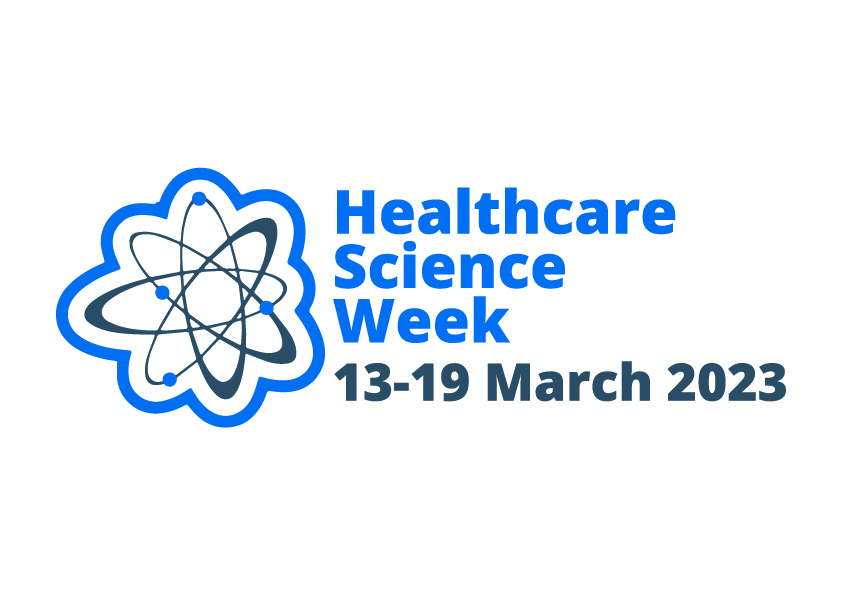Who are they? Meet your healthcare scientists

There are thousands of jobs that you can do in the NHS. Many are well-known – for example, most people can easily conjure up an image of a nurse or a doctor.
But what about a healthcare scientist? Would you know what type of work they do? And would you know that the term ‘healthcare scientist’ actually covers a wide variety of roles – from those who work behind the scenes and don’t tend to interact with patients, to those who see patients every day?
Don’t know? Don’t worry! This Healthcare Scientist week, we’re shining a light on a group of NHS staff who play an essential role in ensuring patients get the care they need. Read on to find out who these people are.
What is healthcare science?
Healthcare science is the branch of healthcare that focuses on how science and technology can come together to play a vital part in modern patient care and encompasses a wide range of roles.
What do healthcare scientists do?
Healthcare scientists do many different roles – over 50 in fact. Some are lab technicians who work in blood sciences, analysing samples and ensuring the lab runs smoothly. Others are neurophysiologists who study how the central nervous system and brain work, help to diagnose neurological disorders like epilepsy and play a role in monitoring patients with brain conditions, including meningitis or strokes.
Tell me more…
A big group of healthcare scientists are those who work in labs, including pathology labs. These are the people who carry out tests on a sample that you have taken in a healthcare setting – think blood sample, urine sample, smear test etc. The East and South East London Pathology Partnership, which is hosted by Barts Health, combines the pathology services of three London NHS trusts, making it one of the busiest around. They perform millions of tests every year, with the aim of providing patients and clinicians a reliable, high-quality service.

Another area of healthcare science is respiratory physiology and sleep services. Talking about their role as a respiratory physiologist, Rasheda Choudhury, a lead healthcare scientist at Barts Health and The Royal London Hospital involves, explains:
“My role as a respiratory and sleep healthcare scientist is to carry out tests that assess, among other things, patients’ lung function, and work to develop a treatment plan to help them manage any conditions they might have, like asthma or sleep apnoea. It’s an incredibly fulfilling role, which allows me to champion positive change for patients and their care and to contribute to improving and developing new, innovative clinical pathways.”
Medical incubators awaiting repair Respiratory scientists prepare patient


And did you know that there are engineers who specialise in healthcare equipment? Medical engineering is a branch of healthcare science that ensures the medical equipment used to treat patients is safe, works properly and to repair equipment that needs it. This ranges from equipment like nebulisers and syringe drivers to incubators for newborn babies – like the ones above that are due to be repaired so they can go back onto our neonatal unit.
Join the gang
These are just some of the over 50 healthcare sciences roles available. There are lots of ways roles to get involved in. If you’re looking for a new role or a training programme, check out our healthcare scientist vacancies and join Team Barts Health. Or, if you want to learn more about becoming a healthcare scientist, visit the NHS Healthcare Science website.
